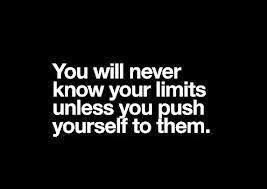
Is It Risky Self-Publishing?
 While I was busy pounding away at my keyboard in the hopes my work will be done on time, a friend of mine called me. We have spent years being the type of people who like to ask questions and demand answers. And I do mean demand, loudly, rudely and just in general with no shame. In this case, demand in a loud voice he got to the point.
While I was busy pounding away at my keyboard in the hopes my work will be done on time, a friend of mine called me. We have spent years being the type of people who like to ask questions and demand answers. And I do mean demand, loudly, rudely and just in general with no shame. In this case, demand in a loud voice he got to the point.
After the normal “how do you do?” he asked me why I would be so risky?
I don’t consider myself to be a risky person, but I humoured him for a bit, until I finally asked him to explain why I was risky?
He is a bit of a definition fan, and told me according to the Merriam-Webster dictionary I am a risky person because I write, and self-publish. In his mind, this is allowing for limited marketing and income. This makes a lot of sense to me, and I will admit to having the many reference books to self-publishing near my desk, but I am sure I am not a risky person. I don’t take risks or at least with money unless I am sure it will turn out well. Or, at least that is what I tell myself.
 Or maybe, I have become immune to the risks of self-publishing since I have been working in the field for a long while, and what goes up must come down as the saying goes. Amazon believes there is money to be made with self-publishers, so there is a bit less of a risk now to publish something and sell it online.
Or maybe, I have become immune to the risks of self-publishing since I have been working in the field for a long while, and what goes up must come down as the saying goes. Amazon believes there is money to be made with self-publishers, so there is a bit less of a risk now to publish something and sell it online.
Money has the power to increase more authors to take more risks.
First thing is defining what risky means: involving the possibility of something bad or unpleasant happening: involving risk. You want to avoid some forms of risk, and not others- in this way you can create money and have less of a worry that publishing a book won’t be a success.
A good example is using all aspects of the writer’s networks at your disposal and do it well. Twitter, Facebook, blogs and other ways you can make a brand for yourself are musts in the writing business.
 If the possibility of something unpleasant happening is a part of self-publishing, then yes, it is a risky endeavour, but with knowledge and experience there is always less risk. I learned having an editor is an important part in avoiding the roller coaster like highs and lows.
If the possibility of something unpleasant happening is a part of self-publishing, then yes, it is a risky endeavour, but with knowledge and experience there is always less risk. I learned having an editor is an important part in avoiding the roller coaster like highs and lows.
I’ve also learned to trust the experience of others when it comes to learning about something I am not sure of, or simply don’t know about. This is a smart move when there is risky business going on— or anything to do with money.
To me, risky self-publishing is when you can be sure that the money you spend will never be rewarded in any way. If you publish a book with Author House, or iUniverse or Xlibris, and spend close to or more than $1,500
will you or can you be sure that your royalty will eventually allow you to break even?
Or, if you self-publish a niche market book will this happen as well?
I had to admit to my friend I was a bit of a risk taker, but I think that if you continue to self-publish and learn about what works, and what doesn’t work, you will eventually find that there is always a small bit of risky self-publishing. This isn’t because of your writing, but the nature of living a life of writing.
Publishing is a lot of taking a bit of logic and more emotions and pushing your limits, with less negative risk.
One Book = More Risk?
You May Also Like

How Much Money Should You Spend Marketing Your Book?
August 9, 2012
15 Reader Questions Answered
October 3, 2014
